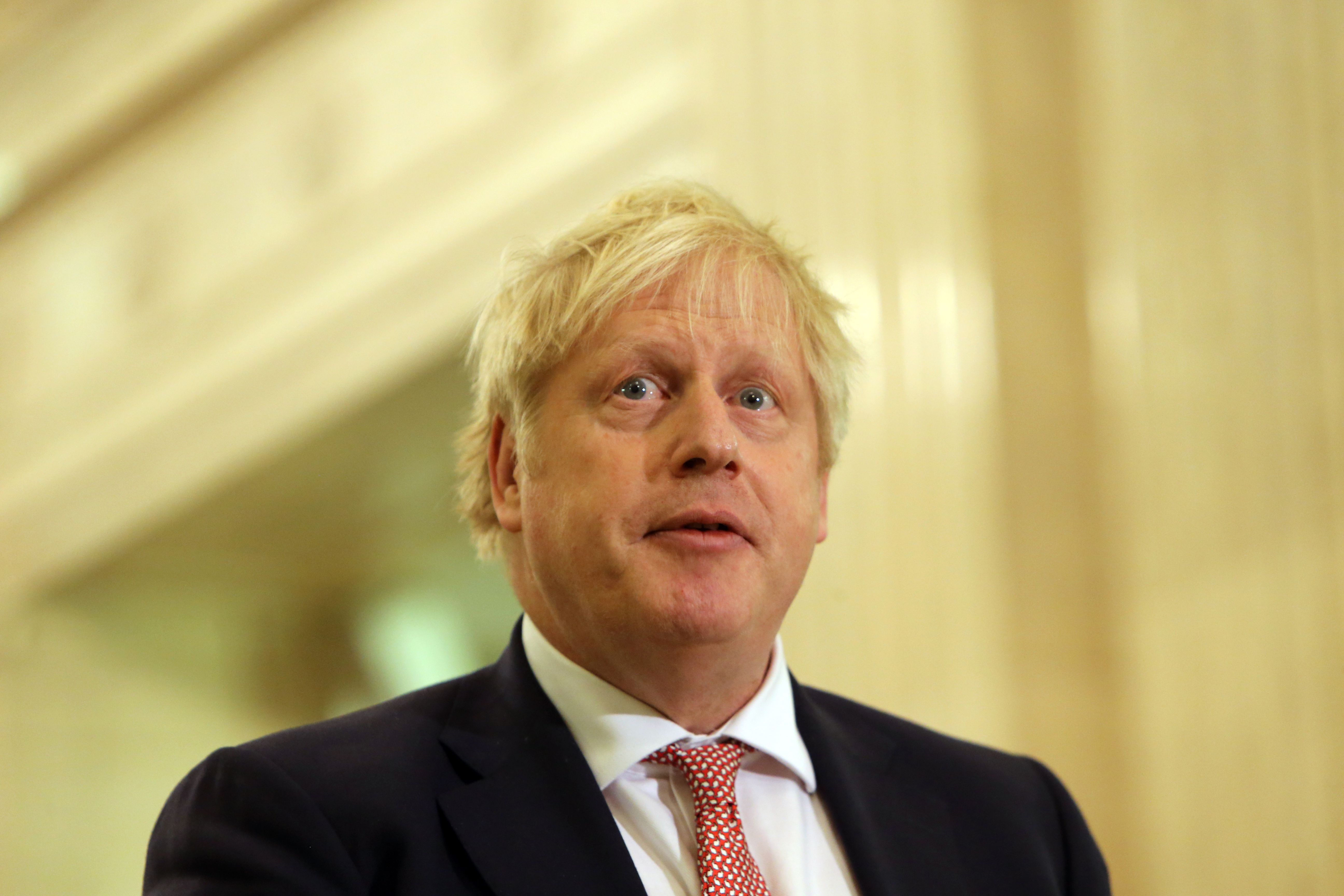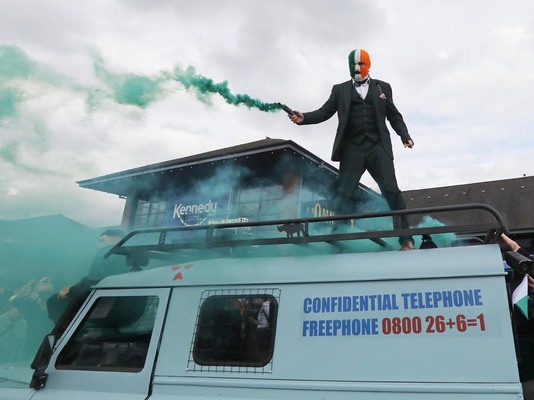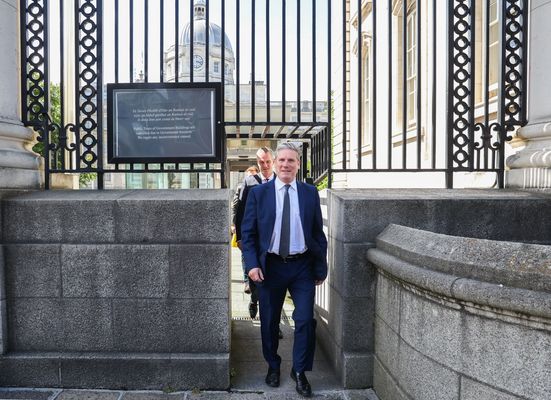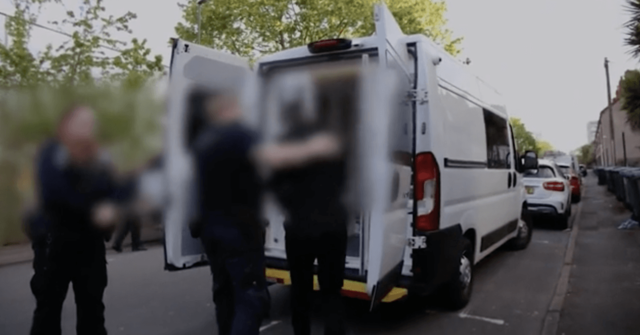WHILE the Minister for the Union nurses his long and heavy party hangover, and sets up yet another inquiry into Tory party anti-‘Muslimness’, the House of Lords’ Committee on the Constitution was putting the finishing touches to its latest report, Respect and Co-operation: Building a Stronger Union for the 21st century.
The report says the union is in a fragile state and current attempts to shore it up are often top down and insensitive to the views of devolved authorities, including English regions and local government. It takes a deep dive into what the union means, what is wrong with it and what might be done to fix it. In case you hadn’t noticed, preserving the union has become a more active and self-conscious area of British government policy-making in recent years, so some scrutiny is in order. Union policy is Sue Gray’s day job when she is not breathalysing workers in Downing Street.
The report is a good deal more reflective than the defence of the union we are used to from the pages of the News Letter, or from the leaders of political unionism. This typically involves attacking nationalism and individuals expressing a nationalist perspective, rather than anything of substance that goes beyond asserting the union as a principle and the natural order of things.
In a similar, negative and backward-looking vein, the historian Ruth Dudley Edwards participated in a unity debate hosted by irishborderpoll.com last week in which she argued: a) the south doesn’t want unity, b) the north won’t vote for it in the near future, if ever, and c) the whole debate is a Sinn Féin conspiracy. Not long ago she wrote: “Sinn Féin is a cancer on both sides of the border, a powerful cult that is run from behind the scenes by the IRA Army Council.” She wrote this after the passing of John Hume (3 August 2020), a ‘tribute’ to his “appalling misjudgement” of engaging in the peace process with Gerry Adams.
United Irelanders or Unionists: The Debate:
— Irish Border Poll (@irishborderpoll) January 21, 2022
Who’s living in Never-never land?
Featuring @JonTonge @KevinPMeagher @RuthDE
And introduced by @Ella_M_Whelan
@IrelandsFuture @SharedIreland @Think32_
https://t.co/Ke8co1Oaqj
The Lords’ report says the key elements of the union are: political (sovereign UK parliament), economic (single market, currency, central bank), social (pooling and sharing of risks and resources for ‘advanced’ social security and health systems), security and defence, and culture. The idea that this checklist represents unique and superior features of the UK union is so obviously questionable that it shouldn’t detain us here. But how does the report see the current crisis of the union?
The main problem is people are falling out with the union. This is not just to do with Scottish nationalism, increasing nationalist sentiment in Wales or unionism’s decline in the north of Ireland. It’s also about England where two-fifths of people are happy enough for Scotland, Wales or Northern Ireland to go their own way. It’s actually worse than that because within the Tory party itself, 59 per cent of members polled in 2019 were happy to see Northern Ireland break off from the UK if it meant “getting Brexit done”.
So there is a decline in “emotional support” for the union which the politics of Brexit laid bare. Some witnesses to the Committee described the government’s approach as “Anglocentric British nationalism”.
🟦 It also criticises the UK Government’s “Anglocentric British nationalism”, which it says is undermining the UK’s legitimacy. (2/2)
— Believe in Scotland (@believeinscot) January 22, 2022
The rise of right-wing English nationalism, reflected in the various lobby groups among Tory MPs, means the ruling party is immersed in English politics and culture wars. This crowds out a focus on making people feel better about the union. It also means that the government is emotionally illiterate in its behaviour towards Scottish and Welsh political representatives, and even towards its diehard supporters here in the north of Ireland. The Irish Sea border is just the tip of the iceberg.
The strategy for binding the union together has three strands say the Lords. The first concerns ‘governance’ and includes relocating civil service jobs outside London, possible further devolution within England, and a review of intergovernmental relations. For instance their unelected Lordships recommend that the House of Lords should strengthen its scrutiny of bills that engage the Sewel convention (which is that Westminster does not normally legislate on devolved matters without the consent of the devolved legislatures).
Fears that House of Lords will seek to 'interfere' in devolution after new Stronger Union report https://t.co/tn39qhj0Ut
— John hughes. Cymru Ydyn Ni. (@JohnHughes127) January 21, 2022
The second strand is economic: freeports, the UK Internal Market Act, the Shared Prosperity Fund and the yet-to-be-defined ‘levelling up’ agenda. The Shared Prosperity Fund replaces EU structural funds over which the devolved administrations had considerable control.
The third strand is to do with “union connectivity” – essentially infrastructure – which so far has produced a review of road and rail networks. The Scottish government refused to play ball with the Union Connectivity Review because it was Westminster interfering in a devolved matter. The Northern Ireland Executive did cooperate, however, and among the recommendations (published in November 2021) was that Westminster should “provide funding and major project expertise to the Northern Ireland Executive to support their work with the Republic of Ireland relating to the All-Island Strategic Rail Review and its implementation, including connectivity between Belfast and Dublin, between Derry/Londonderry and North West Ireland…” Or as the DUP might see it, putting a united Ireland on track.
One off-shoot of the Connectivity Review was the feasibility report on “A Fixed Link between Great Britain and Northern Ireland”, a.k.a. the fantasy bridge and tunnel project. It was revealed last week that this 39-page ‘desktop’ study cost £896,681, which was only £206k less than the cost of the entire Union Connectivity Review. But hey – what’s a million when there’s no problem writing off £4.3 BILLION fraudulently claimed from emergency Covid-19 financial support schemes.
This was the final straw for Treasury Minister Lord Agnew who resigned over the government’s “lamentable track record” in countering fraud over the last two years. Oversight of the ‘bounce back’ loans had been “nothing less than woeful” and the Treasury appears to have “no knowledge or interest in the consequences of fraud to our economy or society”.
Those who dream of a hyperloop connection to the House of Commons might have thought the fixed link was worth scoping; the more rational amongst us knew already that it was not. A tunnel would cost £209 billion, while a bridge would be £335 billion, an amount which would eradicate poverty in the north for 430 years. British and Irish railways are different gauges, Beaufort’s Dyke is full of Ministry of Defence unexploded munitions, and there are much more important priorities. Ireland is crying out for infrastructure investment on new railways and electrification, and renewable energy production.
'World's most stupid tunnel to Ireland': Boris Johnson's former chief adviser Dominic Cummings gives his view on the Prime Minister's idea of building a bridge/tunnel between Northern Ireland and Scotland.#DominicCummingsInterview #DominicCummings pic.twitter.com/AG4uZ3CqPP
— Brendan Hughes (@brendanhughes64) July 20, 2021
Feeling more emotionally drawn to the union yet? How is Johnson’s government doing in promoting the Lords’ vision of “a more cooperative Union based on a renewed sense of respect and partnership”?
When the mask slips, we see the quasi-colonial mindset which even has difficulty respecting members of their own party: witness Rees-Mogg’s casual reference to the leader of the Scottish Tories, Douglas Ross, as “lightweight”.
Millionaire, Brexit-supporting Jacob Rees-Mogg called Douglas Ross a "lightweight".
— Olaf Stando (@olafdoesstuff) January 20, 2022
It wasn't a slip of the tongue - it was an insight into the deep sense of contempt that the Tory establishment holds Scotland with. #bbcqtpic.twitter.com/27pKAytEzc
It would take more than an expensive bridge over troubled waters to compensate for the reaction to such contempt. Besides, there are other more fitting things to call Ross given his fiercely anti-Traveller attitudes.
This weekend, don't miss my long read on Douglas Ross and the history of persecution of Scotland's Gypsy/Travellers: https://t.co/kS8CCvWvFC
— Adam Ramsay (@AdamRamsay) April 17, 2021
Another recent gesture also went badly. When #jeffreymandering is trending on Twitter you know that another prop-up-the-union project has backfired. Such blunders do not warm anyone to the union but only reinforce the feeling that perfidious Albion has not gone away. Did someone mention legacy issues?
Prime Minister just confirmed at #pmqs that the amendment to reintroduce double jobbing in Northern Ireland is to be withdrawn in the Lords.
— Deirdre Heenan (@deirdreheenan) January 19, 2022
Bad news for DUP, good news for democracy.#JeffreyMandering








